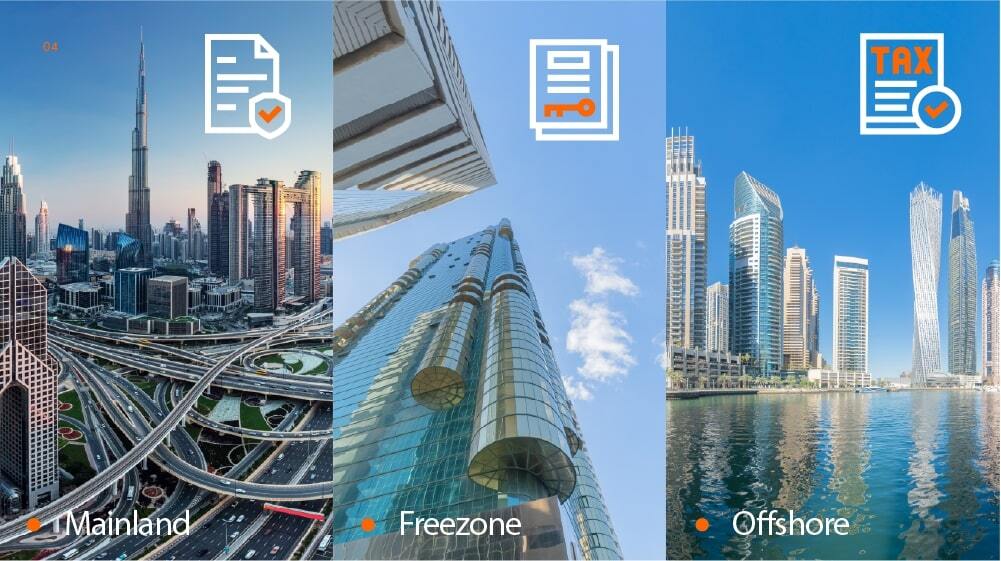Dubai has become a magnet for entrepreneurs and global investors. Its strategic location, modern infrastructure, and zero personal income tax policy make it an appealing destination for setting up businesses. From tech startups and professional consultancies to retail and trading firms, Dubai offers promising opportunities across sectors.
However, while the rewards are clear, the path to launching a company here isn’t always straightforward. Many foreign entrepreneurs find themselves entangled in bureaucratic processes, hidden costs, and unexpected legal barriers. Understanding the full landscape is essential to avoid missteps that could delay or derail your venture.
In this blog, we will break down eight essential business setup challenges in Dubai that every entrepreneur should know. We’ll explore legal structures, licensing, banking, and cultural considerations, offering practical insights to navigate each one successfully. Whether you’re at the idea stage or already planning your move, this guide will help you prepare thoroughly and avoid common mistakes.
Table of Contents
Business Setup Challenge in Dubai: Navigating Legal Requirements

When it comes to business setup challenges in Dubai, the first and often most complex hurdle is understanding the legal framework. The UAE offers several options for incorporation, including mainland, free zone, and offshore entities. Each has its own rules regarding ownership, taxation, operations, and regulatory oversight.
Here’s what makes the business setup challenging:
- Entity Types Vary Widely: Mainland companies allow you to operate anywhere in the UAE but may require a local sponsor depending on the business activity. Free zones offer 100% foreign ownership but limit trading to within the zone or internationally unless special permissions are obtained. Offshore entities are typically used for holding companies or international trade, but not for onshore operations.
- Regulations Differ by Emirate and Sector: While the federal government oversees certain laws, individual emirates and free zones have their own governing authorities. What applies in Dubai Multi Commodities Centre (DMCC) might not apply in Dubai Internet City or Dubai Mainland.
- Changing Legal Landscape: As of 2025, the UAE continues to update its corporate governance standards. Recent reforms have improved clarity for foreign investors, but also introduced stricter compliance and reporting obligations.
The UAE government has introduced more than 40 legislative and regulatory reforms in recent years to boost investor confidence and streamline setup procedures. While this signals a pro-business environment, it also means the legal structure is continuously evolving.
Challenge 2: Understanding Licensing Types and Restrictions
One of the most frequent business setup challenges in Dubai involves choosing the correct trade license. Without the proper license, your business activities may be restricted or deemed non-compliant.
Here are some of the biggest licensing-related business setup challenges in Dubai:
- Multiple License Types: Licenses are issued under three broad categories: commercial, professional, and industrial. These are overseen by the Department of Economy and Tourism (DET) or individual free zones. But within each category are hundreds of specific activities, each tied to its own code. Selecting the wrong one can lead to rejections, delays, or limitations in what your company can legally do. This is one of the most frustrating business setup challenges in Dubai for entrepreneurs.
- Mismatch of Activities: Many businesses today operate across multiple verticals. For instance, a company offering digital marketing and software development may need a license that covers both services. If the activities fall into separate categories, you might need multiple licenses or special approvals. This adds complexity to the already difficult business setup challenges in Dubai.
- Special Approvals Needed: Sectors like education, healthcare, law, and finance often require clearance from external regulators like KHDA, DHA, or DFSA. Missing these steps or not even knowing they exist is a surprisingly common issue, and it’s one of the quieter but critical business setup challenges in Dubai.
- Annual Renewal and Inspection: Even after securing your license, you’ll need to keep it active through annual renewals. Some licenses also require inspections, audits, or location-based compliance checks. Managing these deadlines while running a business is another operational headache and part of the broader business setup challenges in Dubai that catch founders unprepared.
Failing to correctly classify your activity is one of the most overlooked challenges when setting up business in Dubai. We suggest checking out our article on the different types of business licenses in Dubai to get it right.
Challenge 3: Dealing with the Visa Process

Among the most frequently cited business setup challenges in Dubai is navigating the visa and immigration system. Whether you’re a business owner, an investor, or someone planning to bring in a team, securing the right visas is a non-negotiable part of legally operating in the UAE.
What makes it difficult:
- Step-by-Step Complexity: Before you can even begin hiring, there’s a long list of administrative steps starting with securing your establishment card and e-channel registration. Without these in place, your company can’t sponsor a single employee. The sheer volume of paperwork involved is one of the most tedious business setup challenges in Dubai, especially for first-time founders.
- Quotas and Restrictions: Unlike many other countries, visa quotas in the UAE aren’t always flexible. In most free zones, your visa quota depends on the size of your office. A small flexi-desk might only allow one or two visas, while a full office space unlocks more. For entrepreneurs expecting to scale quickly, this can be one of the more unexpected company formation hurdles in Dubai.
- Processing Time and Medicals: Every visa applicant must complete medical fitness exams, Emirates ID biometrics, and additional steps such as health insurance registration. Delays in any one part of this process can hold up operations for days or even weeks.
- Dependents’ Visas: If you’re planning to bring family members, you must meet salary thresholds and secure tenancy contracts that meet UAE housing standards.
The company formation hurdles in Dubai often challenge entrepreneurs when it comes to people management.
Challenge 4: Opening a Corporate Bank Account

One of the most underestimated business setup challenges in Dubai is securing a business bank account. Despite having a registered business, many entrepreneurs face delays or even rejections from local banks.
Here’s why:
- Rigorous Due Diligence: UAE banks operate under strict compliance standards and tend to scrutinize new businesses closely. Especially if you’re a foreign founder, have no prior UAE business history, or operate in what’s considered a high-risk industry, you’ll face heavy vetting. This typically includes presenting a detailed business plan, tenancy contracts, invoices, shareholder documents, and a transparent source-of-funds declaration. The high bar for entry makes banking one of the more technical business setup challenges in Dubai.
- Time-Consuming Process: Account opening timelines vary widely, from as little as two weeks to more than six, depending on your business model and perceived risk level. For many startups, this delay impacts cash flow, investor transfers, and operational planning.
- Bank Preferences: Some banks simply prefer working with established entities that have local revenue, active trade licenses, and a physical presence. For new entrants, especially digital-first or service-based companies, this mismatch in expectations becomes yet another layer in the stack of business setup challenges in Dubai.
- No Guarantee of Approval: Even after submitting all required documents for company formation, approval isn’t guaranteed. Some applicants face silent rejections without a clear reason.
In short, while setting up the company might seem like the biggest hurdle, gaining financial access through a corporate account often proves just as tough. For many, it’s the invisible wall in the broader scope of business setup challenges in Dubai and one that requires strategy, patience, and the right local guidance to overcome.
Still facing banking hurdles? Read How to Open Business Bank Account in UAE for a clear, step-by-step guide.
Challenge 5: Managing Costs and Hidden Expenses
Budgeting is a core concern, and another common business setup challenge in Dubai is underestimating the real cost of setup and operations.
Business Setup Costs you should plan for:
- Initial Setup Costs: These include trade license fees, company registration charges, immigration cards, notary and legal services, office rent deposits, and facility lease agreements. Each of these can vary widely depending on your chosen free zone or mainland jurisdiction, impacting your initial budget.
- Ongoing Compliance Costs: Maintaining your business requires continuous financial commitments such as annual license renewals, lease renewals, professional accounting and auditing services, and visa renewals. These recurring costs are often underestimated in early planning stages, leading to cash flow strain.
- Unexpected Charges: Several costs often remain hidden until later in the process. Examples include Ejari registration for lease agreements, document attestation and translation fees, health insurance premiums mandated by UAE law, and security deposits for office facilities. Such expenses can disrupt your cash flow if not anticipated early on.
- Sector-Based Expenses: If your business operates in a regulated industry like healthcare, education, finance, or food services, you may face additional expenses such as mandatory certifications, regulatory inspections, and facility upgrades to meet compliance standards. These sector-based costs represent an important yet one of the frequently overlooked business setup challenges in Dubai.
If you’re not clear on these costs early, you may face company formation hurdles in Dubai that could deplete your startup capital prematurely.
Challenge 6: Understanding Cultural and Market Differences
Dubai is diverse and international, but it still has unique cultural norms and business practices that can influence your success. This is one of the less obvious but equally critical business setup challenges in Dubai.
Things to keep in mind:
- Business Etiquette Matters: In Dubai, punctuality, respect for hierarchy, and long-term relationship-building are essential for establishing trust. Unlike more transactional markets, cold selling and aggressive pitches rarely work. Patience and consistent rapport-building are vital components of overcoming business setup challenges in Dubai in this regard.
- Language and Communication: While English is widely used, Arabic remains the official language of the government. Contracts and legal documents are typically drafted in Arabic.
- Market Preferences: Consumer behavior varies by region and community. Products and services must often be tailored to local preferences, religious customs, and seasonal trends.
- Workforce Diversity: Multinational teams mean multicultural management. Navigating different work styles and expectations requires skill.
This is one of the softer but significant challenges when setting up business in Dubai, especially for founders unfamiliar with the region.
Challenge 7: Regulatory Changes and Compliance
Dubai’s pro-business policies make it attractive, but the pace of regulatory evolution can create uncertainty. Staying compliant with the latest rules is one of the pressing business setup challenges in Dubai.
What you need to watch:
- Taxation Updates: As of 2025, the UAE has introduced a federal corporate tax of 9% for businesses exceeding the AED 375,000 profit threshold. Firms must now maintain accurate accounting and submit tax returns.
- Economic Substance Regulations (ESR): Companies engaged in certain activities must demonstrate actual economic presence in the UAE. Non-compliance can lead to penalties and license suspension.
- Anti-Money Laundering (AML): The UAE government is intensifying enforcement around AML and CTF regulations. Companies must establish effective internal controls, conduct regular risk assessments, and report suspicious activities. Navigating these complex regulations adds another layer to the business setup challenges in Dubai.
- Ultimate Beneficial Ownership (UBO) Reporting: All UAE businesses must disclose their real owners to maintain transparency and avoid sanctions.
According to the UAE Federal Tax Authority, as of 2025, over 300,000 businesses are required to comply with the newly introduced 9% corporate tax, marking a major shift in the regulatory environment
Challenge 8: Choosing the Right Location for Your Business

Location affects more than just your address. It impacts tax exposure, ownership rights, costs, and how your business operates. This makes location one of the top business setup challenges in Dubai.
Your Business setup options include:
- Mainland: Businesses on the mainland can operate across the UAE and bid for government contracts. While full foreign ownership is now permitted in many sectors, certain activities may still require a local service agent. Choosing the mainland may reduce restrictions, but it comes with higher regulatory responsibilities and setup costs.
- Free Zones: Dubai offers over 40 specialized free zones tailored to industries like tech, media, logistics, and healthcare. These zones provide 100% foreign ownership, customs exemptions, and income tax benefits. However, most free zone businesses are restricted from direct trade with the mainland unless they appoint a local distributor. This is a nuance that often adds to the business setup challenges in Dubai, particularly for startups seeking wide market access.
- Offshore: Often misunderstood, offshore entities are designed for international trading, asset protection, or holding investments. They are not licensed to conduct business within the UAE. While offshore setups can offer privacy and low maintenance costs, they also come with strict operational limitations, making them suitable only for very specific use cases.
Choosing the wrong jurisdiction may result in regulatory limitations or inability to scale. It’s one of the most common challenges when setting up business in Dubai due to lack of foresight or expert guidance. Check our article about mainland vs freezone Dubai to further explore what makes them different from one another and which location fits best for your business model
Conclusion
Setting up a business in Dubai is undoubtedly an exciting prospect, but it comes with real-world complications. From legal entity choices and licensing to banking and cultural alignment, the business setup challenges in Dubai require a well-informed, strategic approach.
Avoiding these pitfalls is not just about saving time; it’s about ensuring your business is compliant, competitive, and sustainable from day one.
If you’re planning to launch or expand your business in Dubai, GCG Structuring provides end-to-end advisory and business setup services to help you navigate the complexities, stay compliant, and go to market faster.
FAQ
1. 0 Can I register a business in Dubai if I don’t live in the UAE?
Yes, you can. Many free zones allow remote registration for non-residents, although you may still need to visit the UAE at some point for document signing or visa processing. It’s best to work with a registered business setup consultant who can represent you locally and reduce complications.
2. 0 Do I need a physical office to start a business?/span>
In most cases, yes. Both mainland and free zones typically require proof of office space or a flexi-desk lease agreement as part of the licensing process. Offshore companies are the exception, but they can’t conduct business within the UAE.
3. 0 Can I sell products online without a traditional store in Dubai?
Yes, but you still need an e-commerce license from the appropriate jurisdiction. Free zones like Dubai CommerCity or DAFZA cater specifically to digital businesses. However, navigating the right licensing model for online sales can present subtle business setup challenges in Dubai, particularly around payment gateways, import duties, and delivery logistics.
4. 0 Can I change my business activity after registration?
Yes, but you’ll need to file a license amendment and possibly seek new regulatory approvals. Some changes may also affect your visa eligibility or bank account. This flexibility is helpful, but it can also introduce new business setup challenges in Dubai if not managed properly.
5. 0 How long does it take to set up a business in Dubai?
It varies. Free zone companies can sometimes be set up within 3–7 working days. Mainland registrations may take longer due to external approvals. The timeline also depends on how complete your documentation is. Missing paperwork is a common cause of delays.
6. 0 Is it challenging to pivot your business model after setup?
Very. Changing your license type or business activity can involve additional fees, paperwork, and re-approvals from different authorities. It’s one of the less talked-about business setup challenges in Dubai, but still a big one for startups evolving fast.





